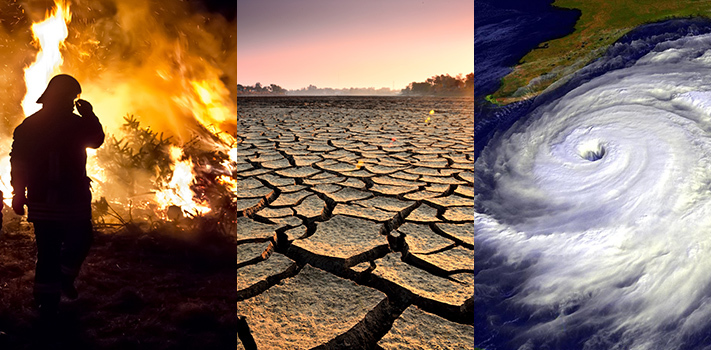In cooperation with the world’s leading scientists, the UN Intergovernmental Panel on Climate Change (IPCC) has released a landmark report on the accelerated rise in pre-industrial global temperature. The report warns that the previous international goal of keeping to a 2°C increase within this century (Paris Agreement 2016), will be exceeded in a mere 12 years. To prevent this alarming, and chillingly apocalyptic prospect, the IPCC has called for “rapid, far-reaching and unprecedented changes in all aspects of society”. If governments don’t act immediately, this window of opportunity will subsequently lead to adverse effects to all aspects of the planet.
The IPCC report, which compiles 3 years of research, explains that a new target of under 1.5°C must be rigorously enforced worldwide in order for the impacts of a warming planet to be manageable, and more crucially, to curveball a “climate catastrophe”. If drastic changes are not swiftly enforced, experts claim that we will see a whole host of dangerous changes to our planet much sooner than expected. These include almost total extinction of coral reefs by the end of the century, 10cm increase in sea levels by 2030, putting 10 million more people at risk of flooding, and detrimental changes in ocean acidity.
So how likely will governments be able to stick to this challenging 1.5°C target? The UN board urges nations to cooperate on making big changes to land use, industry, cities and transport. Prior to the climate report, there is evidence that governments recognise the importance of green legislation and reform. Notably, Sweden made the commendable decision to be entirely carbon neutral by 2045. The Scandinavian country will cut territorial emissions by at least 85% from 1990 levels and offset the rest by investing in overseas green projects- an example of radical reform that the IPCC is so desperately urging for.
However, if we take a look at our own country, it appears that perhaps climate change is not being prioritised to the extent that leading scientists hope for. For instance, this year we saw parliament agree on the construction of a third runway for Heathrow Airport, which would raise emissions by 7.3m tonnes of carbon dioxide every year. It seems hard to ignore the fact that parliament’s almost unanimous agreement over Heathrow’s expansion is driven by a desire for economic growth, completely discounting our legally bound promise to cut 80% of our emissions by 2050.
Nevertheless, it is the global agriculture industry and its land use across the globe that will prove the most challenging in regards to keeping within the tough 1.5°C target. Greenhouse gas emissions from animal agriculture have proved to be even more detrimental than those released from other industry and transport: currently 51% of all emissions. Despite vegetarianism and veganism massively increasing in the West (500% in the US alone since 2014), the developing world, notably Asia, has seen an accelerated demand for meat and dairy. Consequently, this enormous industry is responsible for the loss of 80% of deforestation in rainforests. From this, it is evident that efforts to “go green” do not just rest in the hands of government officials, but that individual lifestyle choices such as diet, also play a massive role.
The IPCC’s report highlights that if “rapid and far-reaching” changes are carried out successfully to control global warming, climate change will not be solved, nor will the effects be eradicated. Rather, it will ensure that impacts it will have on both people and planet unfold at a more manageable pace. Millions of people will be protected from flood risks, the number of people who would experience a lack of water would be halved and half of the world’s species would have their habitats protected. Hopefully, this crucial report will resonate with nations and their populations across the globe, and finally push climate change to the forefront of their priorities in order to reverse the ominous “12-year countdown”.
Izzy Tiffin

